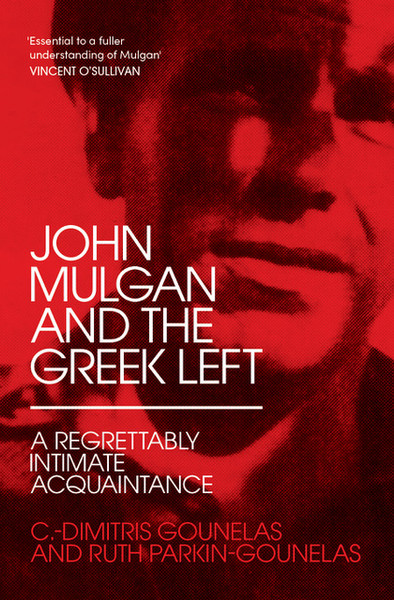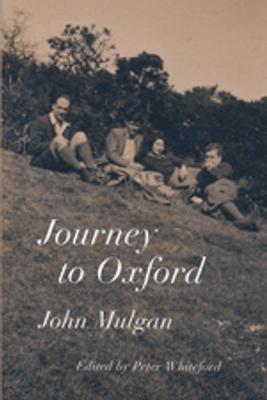Hide Description- Show Description+
With a foreword by Vincent O'Sullivan
In September 1943, New Zealand writer John Mulgan was parachuted by the British Special Services (SOE) into remote mountain terrain in the centre of Nazi-occupied Greece, where he worked with the left-wing resistance to facilitate some of WW2’s most successful episodes of guerrilla warfare. This experience shaped his leftist politics in critical ways, but with the Cold War climate taking over, Mulgan’s allegiance was torn between the andartes he fought alongside and the British command he served under. Found dead in his Cairo hotel room shortly after leaving Greece, Mulgan left many questions about his tragically shortened life unanswered.
Drawing on extensive new research, including much Greek scholarship, as well as close readings of Mulgan’s own writings, this detailed investigation revises the political canvas of wartime and post-war Greece and provides new insight into Mulgan’s activities and contacts – including the identity of the mysterious woman he was with on the night he died – bringing us a much fuller understanding of Mulgan, one in which his ‘intimate acquaintance’ with the Greek left is proved to have been profound and enduring.
'What sets this provocative yet authoritative account apart is its Greek orientation; the authors are distinguished Greece-based academics, one New Zealand-born, who’ve spent years trying to crack the case, chasing heavily restricted files.' —Redmer Yska, Aotearoa New Zealand Review of Books
'a worthy, serious and important work, which has been beautifully produced.' —Hamish McDougall, New Zealand International Review
'This book meticulously unravels the tragic story of New Zealander John Mulgan in Nazi-occupied Greece, as he struggled to come to terms with the role of the British-led commandos among whom he served and to find his own political conscience. It is at once an important contribution to the history of New Zealanders in Europe during WWII and to the still-contested story of the Greek Left in and after the Greek Civil War of the 1940s.' —Roderick Beaton, Emeritus Koraes Professor of Modern Greek & Byzantine History, Language & Literature, Department of Classics, King’s College London
'Every generation has found something of its own debates in Man Alone and John Mulgan's complex legacy. C. Dimitris Gounelas and Ruth Parkin-Gounelas, in this scrupulously scholarly and utterly absorbing bi-focal exposition of Mulgan in the Greek crisis, give us a figure for our own day: enmeshed in an under-recognised anti-colonial struggle, caught and bucking against the political compromises of war, and drawn into the currents of the Greek left. An intimately detailed account of Mulgan's then, this story of austerity, resistance, and bureaucracy has much to teach our now.' —Dougal McNeill, Programme Director, English Literature, School of English, Film, Theatre, Media Studies, and Art History, Te Kura Tānga Kōrero Ingarihi, Kiriata, Whakaari, Pāpāho, Tāhuhu Kōrero Toi, Victoria University of Wellington, Te Herenga Waka
C.-Dimitris Gounelas has a BA in Russian from Victoria University of Wellington and a doctorate in Modern Greek from King’s College London. He has taught at King’s College London, Sydney University, Crete University and as Associate Professor in the Department of Greek Philology at Aristotle University of Thessaloniki. Publications have been mostly in Greek – on literature, politics and the philosophy of language.
Ruth Parkin-Gounelas grew up in Wellington but has lived mostly in Greece. She studied English at Victoria University and Oxford University, and is now Emeritus Professor in the School of English at Aristotle University of Thessaloniki, as well as Life Member of Clare Hall, University of Cambridge. She has published in the fields of 19th and 20th century literature, women’s writing and literary theory.
Cover photograph: Detail from photograph of Mulgan in Thessaly by Spyros Meletzis, 1944
Cover design: Todd Atticus






